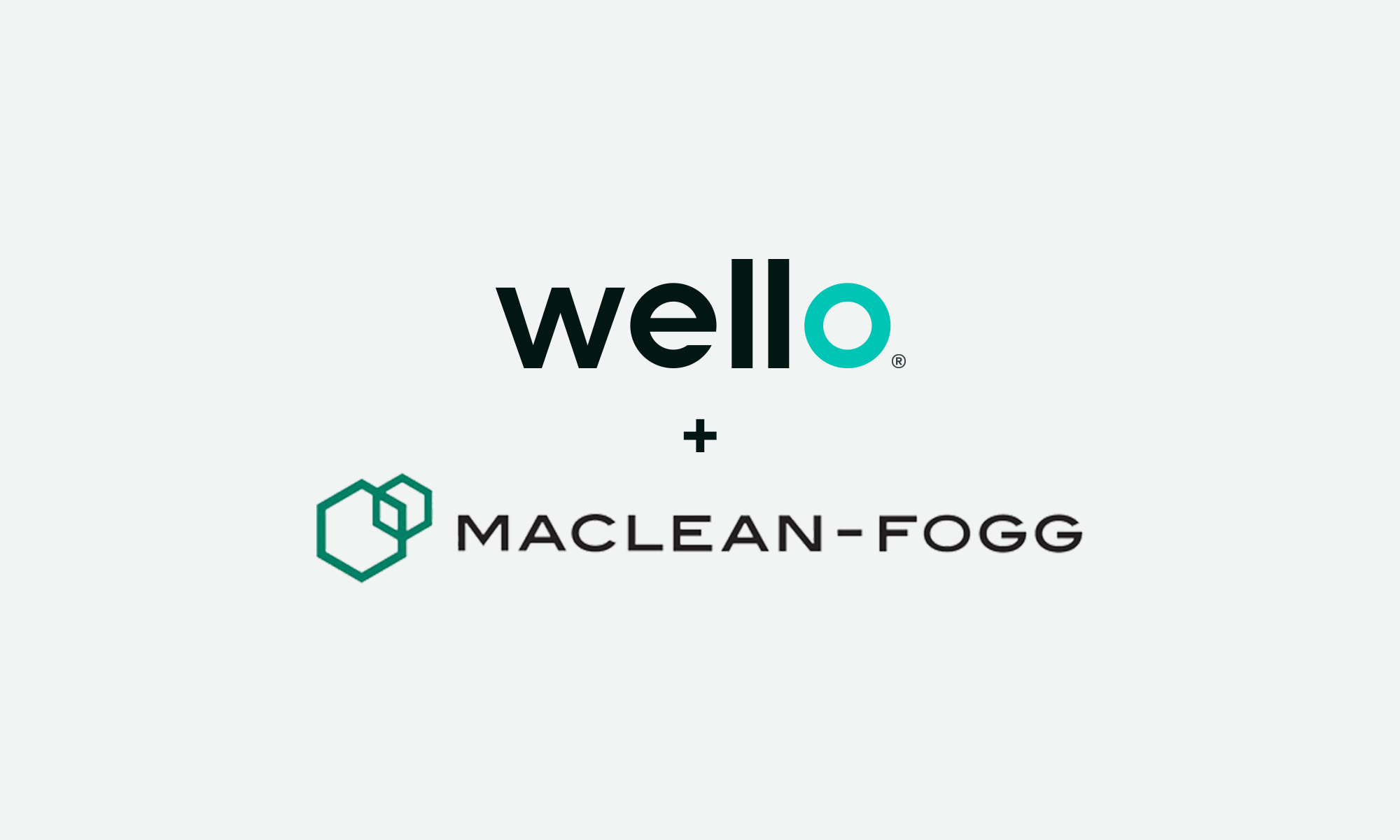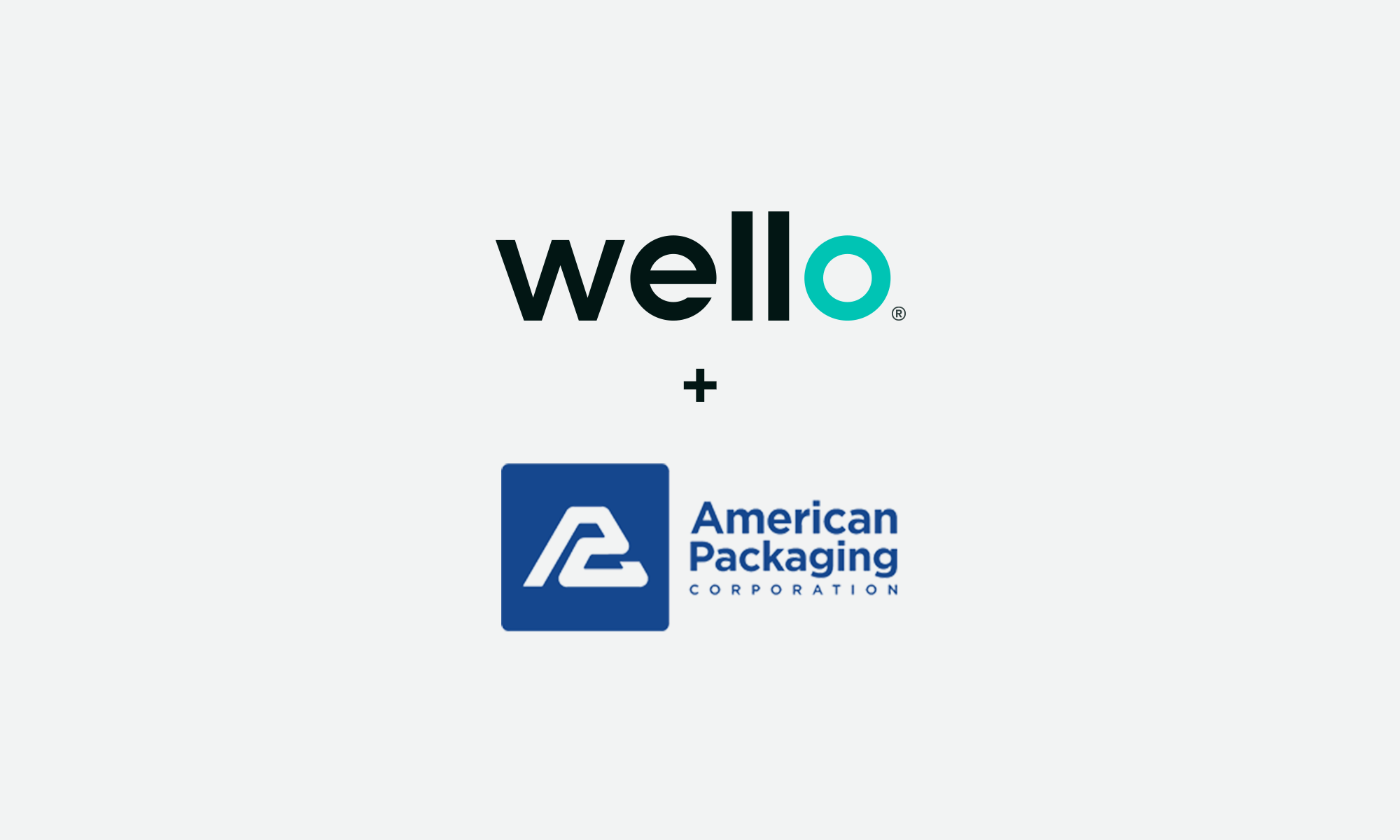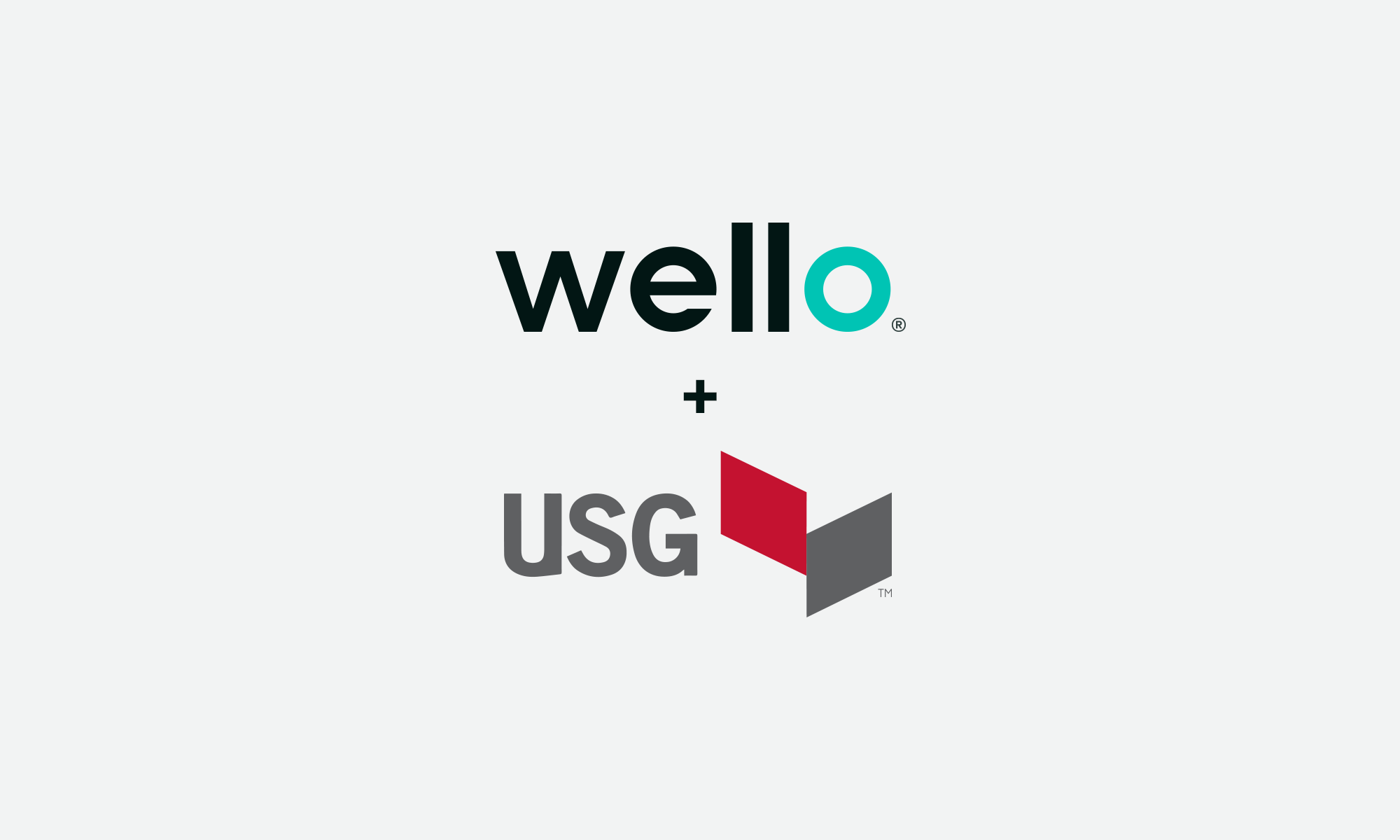MacLean-Fogg makes products that impact nearly all areas of daily life, from driving a car to turning on a light. The company engineers, manufactures, and distributes components for the automotive and heavy truck industries, as well as products for electric utility and telecommunications customers. When COVID-19 threatened to impact the workplace and lives of over 4,000 employees, the company turned to Wello to help keep this essential business fully operational.
Brian Duffy is the Chief Transformation Officer and CIO at MacLean-Fogg. He is tasked with developing strategies and programs that result in lean, efficient operations across over 25 facilities around the world. Environment, Health, and Safety (EHS) initiatives are a big part of this effort and one of Brian’s top priorities.
A drumbeat of safety messages helped prevent accidents
Most employees at MacLean-Fogg work with large machinery or heavy equipment that has a lot of moving parts. Before the global pandemic hit, EHS teams focused mainly on ensuring that employees were operating equipment safely and ergonomically. All meetings at MacLean-Fogg begin with a “safety moment” to help keep EHS messages top of mind for everyone and drive a culture of continuous improvement. As a result, the company has seen injury rates go down. “We realized that we were doing good things to protect our employees,” Brian says, “but we could also do more.”
When COVID-19 hit, safety took on a new meaning
By mid-February 2020, the novel coronavirus had taken the world by storm. MacLean Fogg started an executive task force to address the situation, including the CEO, Brian, director of EHS, the vice president of HR, and division presidents. The new team quickly got to work. “Paying attention is ingrained in our corporate culture,” he says. Their priority was employee health first and foremost, and business continuity second, however, both go hand-in-hand.
The task force reviewed policies and best practices from the CDC and looked at what their business partners and similar companies were doing to prevent outbreaks. General managers and EHS specialists from various locations shared their concerns and learnings. As the ideas flowed, the company began putting many new measures in place to address concerns from both employees and management.
Temperature screening became an essential part of the response
Beyond masks and sanitizing equipment, MacLean’s COVID-19 task force considered temperature scanning to be an important measure to prevent outbreaks and keep plants operational. Early on, the company had begun implementing manual checks, but Brian and team wanted to streamline the process with a more robust solution. With no prior knowledge of the market, they started by conducting online searches for temperature screening units and decided to trial three different solutions, including the welloStationX.
During their evaluation, the task force considered solutions that integrated temperature scanning with facility access and time clocking systems using facial recognition or door locking technologies. Although interesting, they found these would require too much on-site modification and maintenance, as well as dedicated monitoring staff.
Compared with the others, Brian and team favored the welloStationX, in particular the unit’s self-service experience and the “I’m Wello” sticker printing feature that confirms a person’s screening status. “We liked the Wello design best,” says Brian, “so we standardized on Wello.”
welloStationX units roll out in facilities across the county
Each of MacLean-Fogg’s manufacturing plants employs between 150-400 workers and operates three daily shifts. Because people come to work at all hours during the day, the company installed welloStationX units next to the time clock in each facility. As employees enter the building, they stand at the wello unit, get their temperature checked, and receive a sticker to put on their shirt. This gives them access to the facility, and lets everyone know that they’ve been screened that day. The sticker allows them to leave and reenter the building freely throughout their work day.
If an employee doesn’t pass Wello’s screening, an alert is sent to either the general manager, the site’s nurse, or an EHS specialist. The employee then proceeds to a secondary screening area. They may rest for a few minutes and return to the wello unit to try again, or they may need a more thorough health assessment. Overall, the screening process helps both the company and the employee focus on health as a top priority for everyone.
As a result, everyone feels safer around their co-workers
Brian and his COVID-19 task force understand that temperature screening is not proof that a person is infected with the coronavirus, but they find that it helps as an early indicator. If someone comes to work with a fever, it is far better for that employee, and everyone at the facility, that the individual goes home right away to take care of themselves. For the most part, MacLean-Fogg’s employees have agreed with this approach. “WelloStationX has been well received by our workforce,” says Brian. “Employees across the country tell us that they now feel safer at work than at the grocery store.”
In a post-COVID world, screening continues to play a critical role
The focused efforts of MacLean-Fogg’s COVID-19 response team have paid off, and the company has been able to keep facilities operational during the pandemic. They’ve even created a pandemic playbook and shared their learnings with hundreds of other companies. Brian believes that they’ll keep their new processes in place once the crisis is over. “This experience has really educated us on how to prevent outbreaks. When flu season hits and people come to work sick, it affects productivity. We want to keep everyone safe and healthy, no matter what type of virus is going around.”


